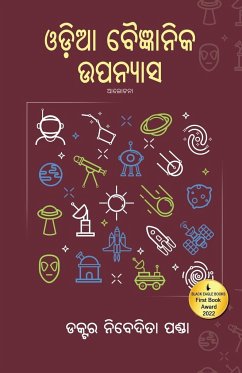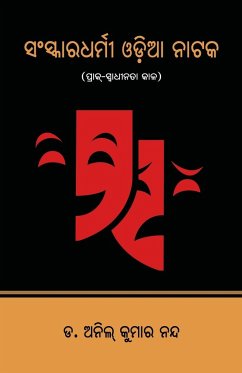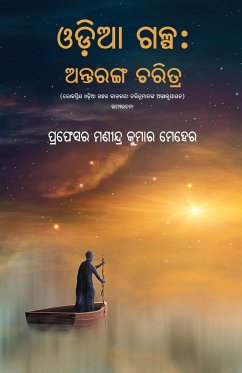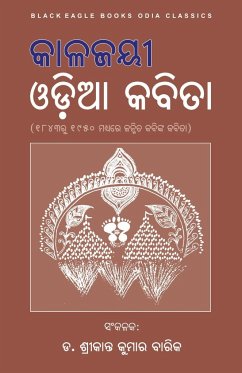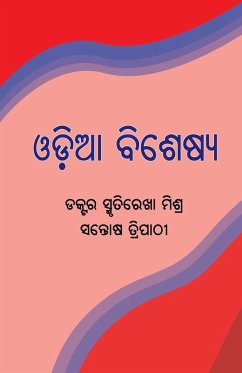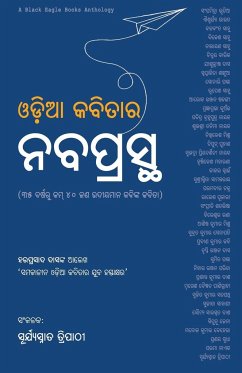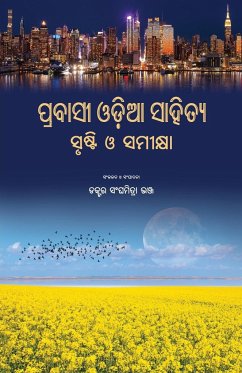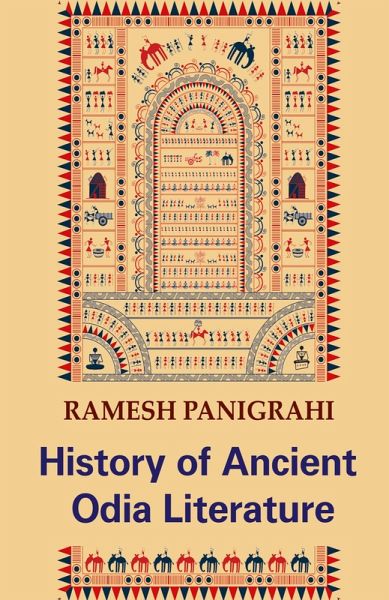
History of Ancient Odia Literature
Versandkostenfrei!
Versandfertig in 1-2 Wochen
22,99 €
inkl. MwSt.

PAYBACK Punkte
11 °P sammeln!
The moment I chose to write this book to outsource Odia literature, a part of my commitment as a historian impels me to seek and serve truth. The writing of history demanded a special kind of observation because all events, having slipped into the past, become hazy and indistinct except the documented traces. The undocumented events turn into memories. I learned to interpret the clues, signs and tracks through cultural memories of the past. But there is no reliable witness in the absolute sense. There is only more or less, reliable testimony. The book, in the process, turned out to be a means ...
The moment I chose to write this book to outsource Odia literature, a part of my commitment as a historian impels me to seek and serve truth. The writing of history demanded a special kind of observation because all events, having slipped into the past, become hazy and indistinct except the documented traces. The undocumented events turn into memories. I learned to interpret the clues, signs and tracks through cultural memories of the past. But there is no reliable witness in the absolute sense. There is only more or less, reliable testimony. The book, in the process, turned out to be a means of clarifying my own ideas on the subject. I discovered the humanist dimensions of historical consciousness, although my western contemporaries seem to deny-or at least, put in doubt-the principles of humanism. I have also been guided by the practice of historical reconstruction in literary studies forced by the need to understand historical materials in their own context. I construct my propositions in two ways-by culling the signifying actions, characters, habits, aims and circumstances of writers and literary terms signifying attributes of literary works. I have followed R.S. Crane's Critical and Historical Principles of literary History to organize my materials in succession of time, distribution in space and likeness and difference in character. I have undertaken to survey systematically he literary productions of my race through time. In all these primary units of interpretation are either works or, more commonly, authors viewed as the most immediate cause of the characteristics exhibited by their works; but the individual histories differ widely according to the fashion in which the basic principles of succession and of likeness and difference are construed. --Ramesh Prasad Panigrahi




